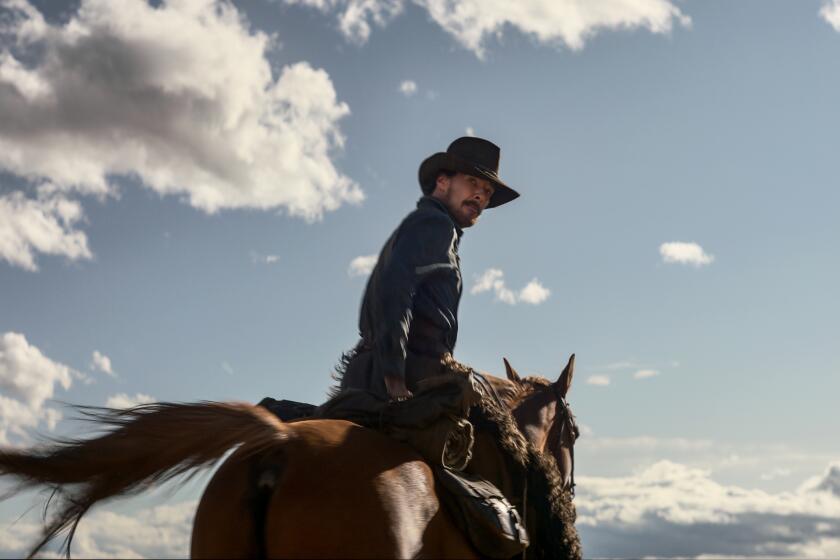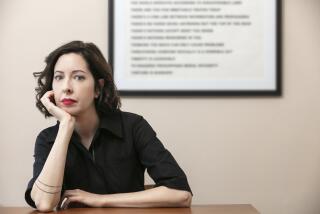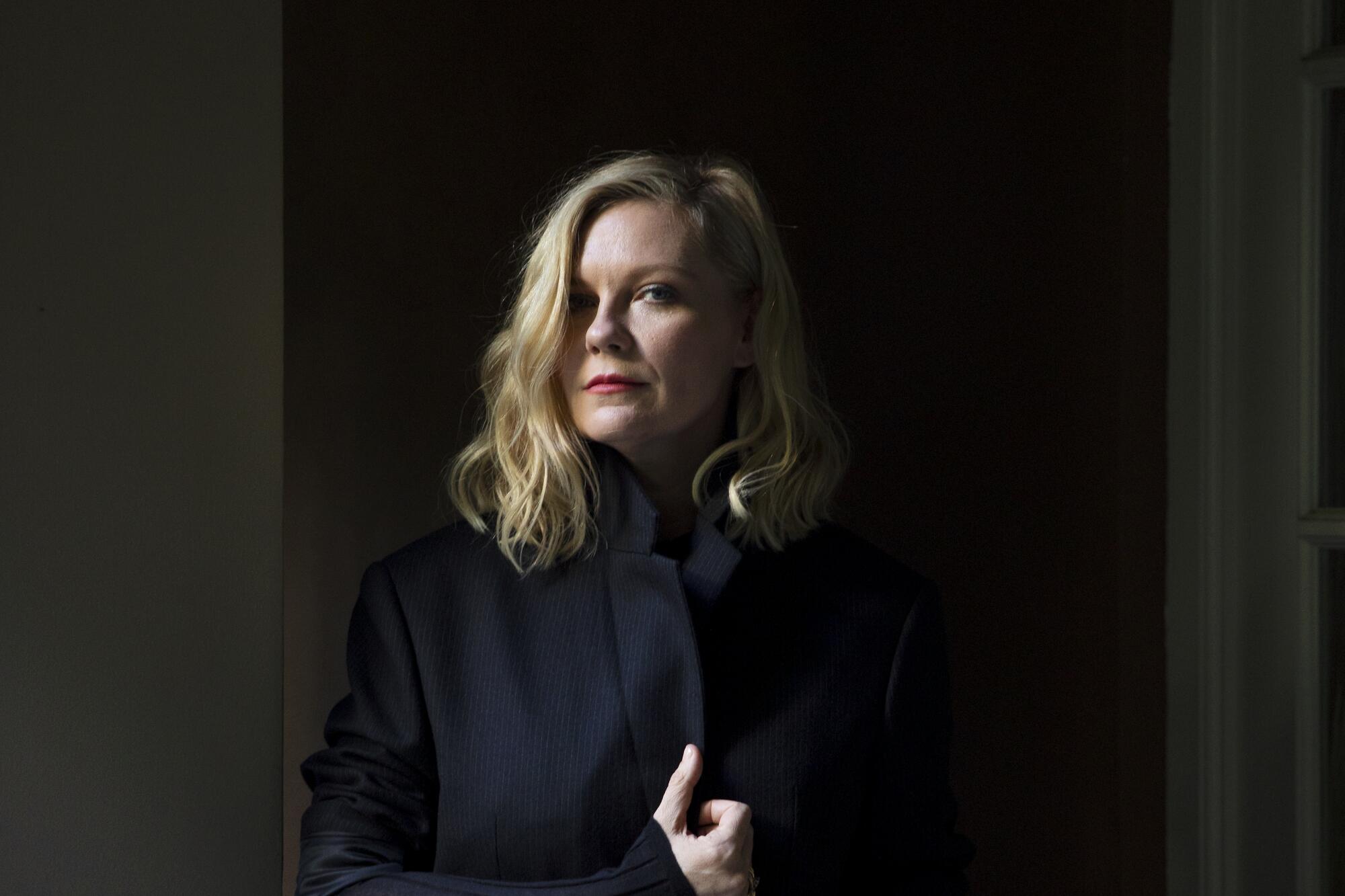
Kirsten Dunst has done something more than just grow up on screen. In her choice of roles, she has let viewers in on each phase of her life, from child actor to teenager to young adult and now a fully grown woman, exploring the internal lives of her characters with a subtle emotional acuity and offhanded charm.
Having first gained acclaim for her role as a child vampire in 1994’s “Interview With the Vampire,” Dunst went on to act in more than 80 films, including “Little Women,” “Bring It On,” “Drop Dead Gorgeous,” “Dick,” “Crazy/Beautiful,” “Spider-Man,” “Eternal Sunshine of the Spotless Mind,” “Melancholia,” “Woodshock” and the TV series “Fargo” and “On Becoming a God in Central Florida.” Her ongoing collaboration with filmmaker Sofia Coppola in “The Virgin Suicides,” “Marie Antoinette” and “The Beguiled” has resulted in some of the most notable performances of her career. Working on “Fargo,” she met actor Jesse Plemons; the two became a couple sometime after and now have two children together.
Dunst’s latest collaboration is with director Jane Campion (“The Piano,” “Bright Star”) in “The Power of the Dog” (in theaters now and streaming on Netflix beginning Dec. 1). Set in 1920s Montana, it’s an adaptation of the 1967 novel by Thomas Savage and Campion’s first feature film in 12 years. Dunst plays Rose Gordon, a lonely widow who impulsively marries George Burbank (played by Plemons) and goes to live with him on his family’s ranch. There she immediately runs afoul of George’s brother, Phil (Benedict Cumberbatch), whose roughneck exterior hides a more complicated identity. Phil begins to psychologically torture Rose, driving her to drink to excess. When her son, Peter (Kodi Smit-McPhee), comes to stay for a summer, the tension only builds.
The role has brought strong reviews and growing awards momentum for Dunst, who has never been nominated for an Oscar. Recently, she sat down for an interview that will launch the L.A. Times’ second season of The Envelope podcast beginning Nov. 30. On what it would mean to her if she were recognized by the Motion Picture Academy, Dunst says, “I don’t really think about it too much because I just can’t. So it feels like, if I get nominated or something like that, incredible. But if not, I got to work with Jane Campion. That trumps any other thing to me.”
This interview has been edited for space and clarity. Listen to the full conversation at latimes.com/podcasts/the-envelope-podcast.
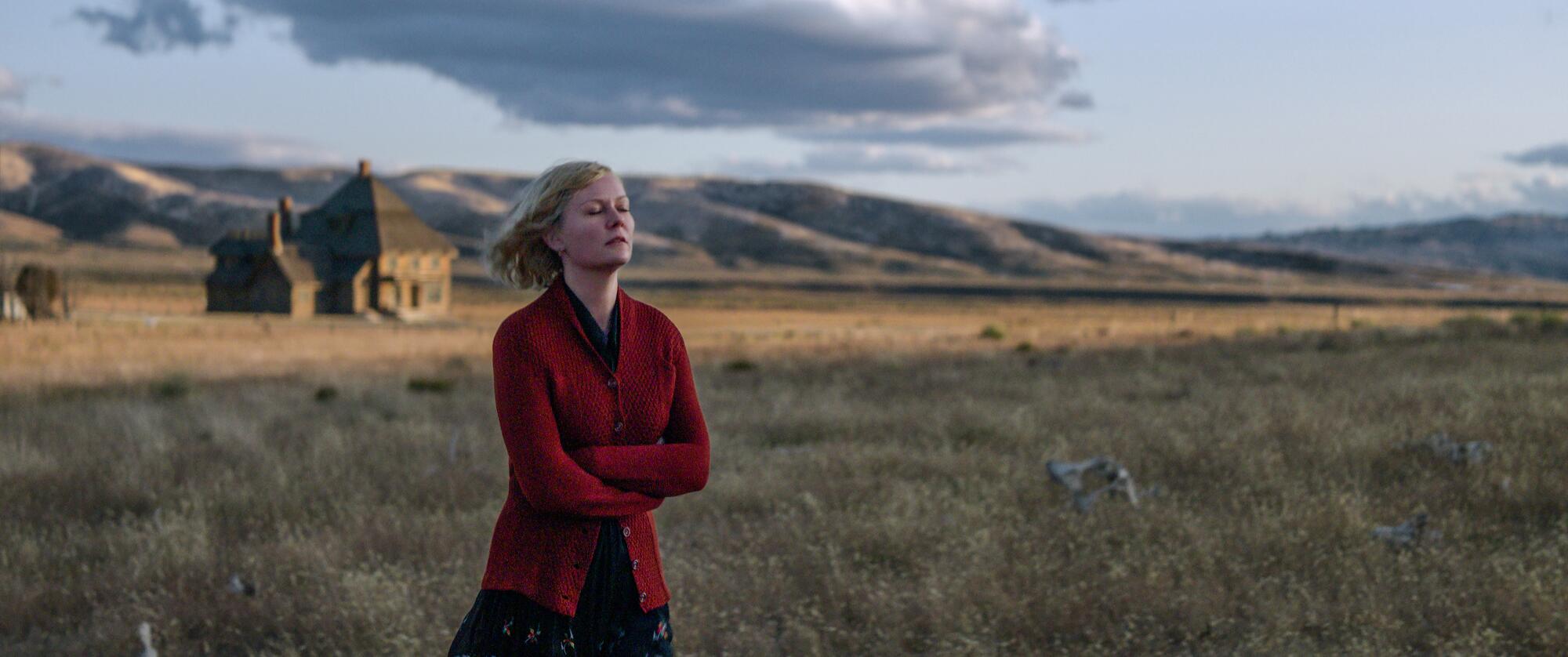
MARK OLSEN: Jane Campion reached out to you with a letter many years ago, and the two of you have long wanted to work together. What was it like to finally work with her? Did it meet your expectations?
KIRSTEN DUNST: Very much so, and then some. And I still kind of fan out when I’m hanging out with her sometimes. I mean, there are things embedded in my brain from “The Piano” that will live with me for the rest of my life that immediately flood me with emotion when I think of them.
What was it about her earlier films that spoke to you?
The female performances in her films have been such an inspiration for me as an actress. Kate Winslet in “Holy Smoke,” I mean, the woman was peeing in a field on camera. I love female performances that are just let-it-all-hang-out. That’s the kind of acting, those are the kinds of performances that inspire me. So working with her, I knew we’d get down to some real things. To be part of one of her films was just life-altering. And now I have her as a mentor.
You also have a long-running collaboration with Sofia Coppola. And Sofia and Jane recently had a conversation at the New York Film Festival where Sofia referred to Jane as her big sister filmmaker. How does working with the two of them compare?
At 16, that age where you don’t feel cool or pretty, Sofia gave me confidence. She made me feel good about myself for entering this, like, more male gaze in Hollywood. So I always felt like I didn’t have to do anything to try and be like a Hollywood blond, like fix my teeth perfectly or anything like that. I didn’t feel that pressure because Sofia thought I was beautiful, and I thought she was the coolest, you know? ... [Compared to Jane,] I think Sofia’s more reserved in the way that maybe my acting has been in her films. And Jane is like, hmm — Jane likes to get down and dirty. I think she wants to see the ugliest parts of people.
Is it difficult for you to show those parts of yourself in a performance?
I like it. It’s cathartic for me. I feel like I get to shed past things in my life and kind of exorcise them out of myself, and I think it just helps me in my life at the end of the day. Or that’s the goal, that a role could be actually cathartic for you.
Kirsten Dunst, Jesse Plemons and Kodi Smit-McPhee co-star in this superlative Netflix adaptation of Thomas Savage’s novel.
Do you have some sense of what the character of Rose has done for you?
I think Rose is a very old part of myself that I had to rehash of just feeling really bad about myself, or allowing myself to feel bad about myself because of other people’s comments or control. In your early 20s, it’s very easy to get swayed into different things or thinking about yourself in a certain way, especially when you’re putting yourself out there as an actress and you’re in a public light. So there are definitely things I can relate to in terms of feeling really badly about yourself.
Was there something cathartic for you in Rose?
I don’t know. Rose wasn’t really, like, joyful to play, and then when I’d come home, I just would think about my work that day, and I don’t know — I wasn’t as confident. I’m happy that Jesse was there with me because I had someone to give me a hug or have lunch with. I remember this one scene I did, and Noriko [Watanabe], who did my makeup and my wig in the movie, I’ve worked with on a couple films, and I just remember crying in her arms one day after some takes. Because it doesn’t stop just because somebody yells cut. It’s not like, “Oh, my tears just dry right up, and OK, out to lunch.” I just felt with Rose it was a very painful experience to play her. Not a role I’d migrate to if it wasn’t in the hands of Jane Campion.
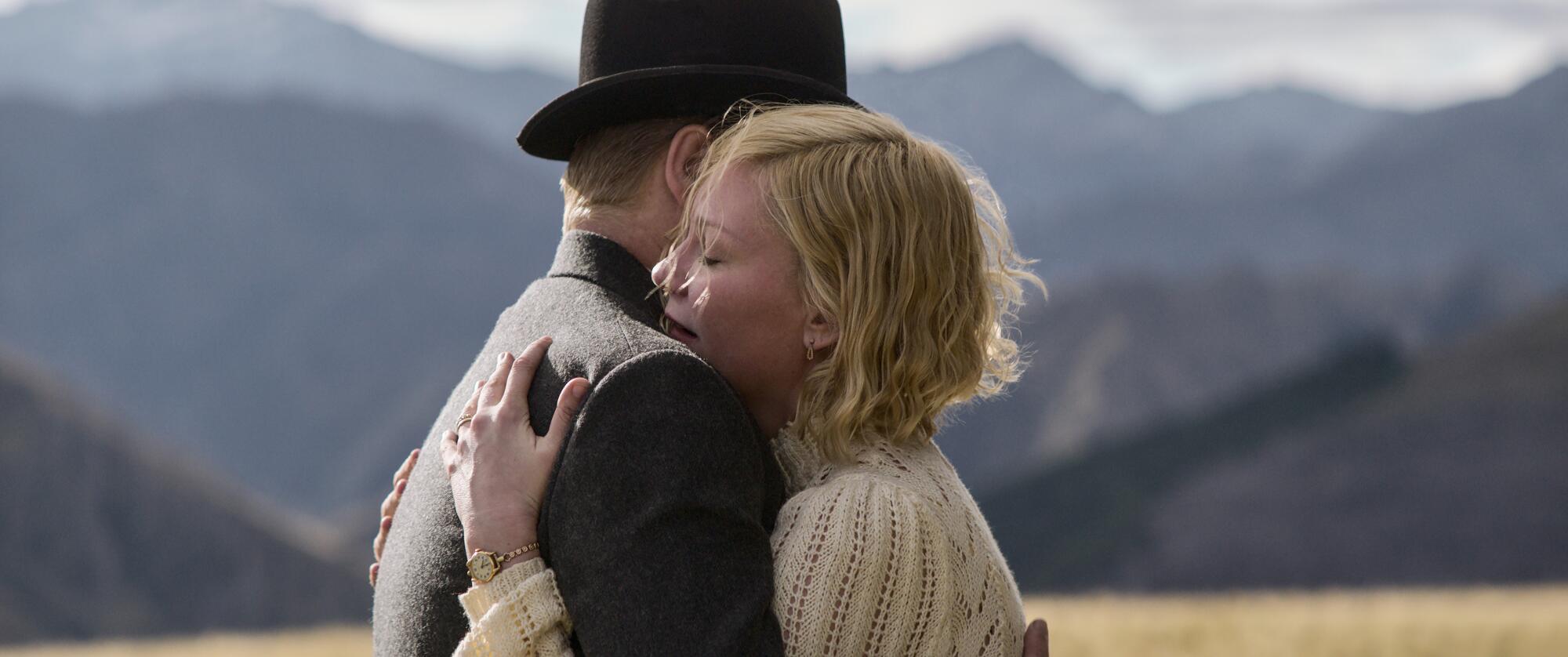
Especially with Jesse being in this movie — I’m going to assume you enjoy watching him perform — it must be difficult to have parts of it you don’t want to watch.
I wish I could watch this just as a Jane Campion fan, because I’m sad I don’t get that experience. I mean, when I watch Jesse and I on the mountaintop, I’m like, “Oh, my God, we’re so dorky,” because we have to act so reserved with each other, and we have [children] together. It’s just funny to pretend there’s no history with someone you have a tremendous amount of history with. It’s just weird.
Tell me more about that scene. It’s kind of the romantic high point of the film. It’s the first time you’re going to his family’s ranch, and you stop on the mountaintop and the camera swirls around the two of you. It’s a beautiful moment. Does it feel more romantic to be doing that with your actual partner? Does it feel silly?
It’s not romantic when there’s a bunch of crew around. Maybe if we were alone on the mountaintop and having a nice cocktail, it’d be great. But it was just, he’s in his little outfit and I’m teaching him how to waltz, and it’s all really old-timey and cute. But also his line, when he says, “It’s just so nice to not be alone,” is, I think, one of the best lines of the film. When he did that, I cried off camera. I was so moved by his performance that day. And also, I feel I wasn’t that good of a dance teacher. That waltz. I mean, I got it together. I did it. I figured out how to teach him.
Do the two of you have a similar process? Can you rehearse together? Especially with going down to New Zealand to shoot, what was it like making the film together?
We fell in love creatively first. He was like a creative soul mate to me and the way we both work. On “Fargo,” I knew after two weeks. I didn’t remember saying this, but one of my best friends told me that I said to her that “I will know this man for the rest of my life. I just know it.” Just because I felt such an immediate connection. Working together on this, it’s just easy. We love working together. So, it’s really, really easy to work with each other. We’re very honest. We’re very down to try anything. No one judges anybody. There’s no ego. It’s just, how do we make this the most alive together and the most real? And then, I’ve been working with my dreams for quite some time now. And I introduced the method to Jesse, and then Jane and Benedict did it for the first time on this film.
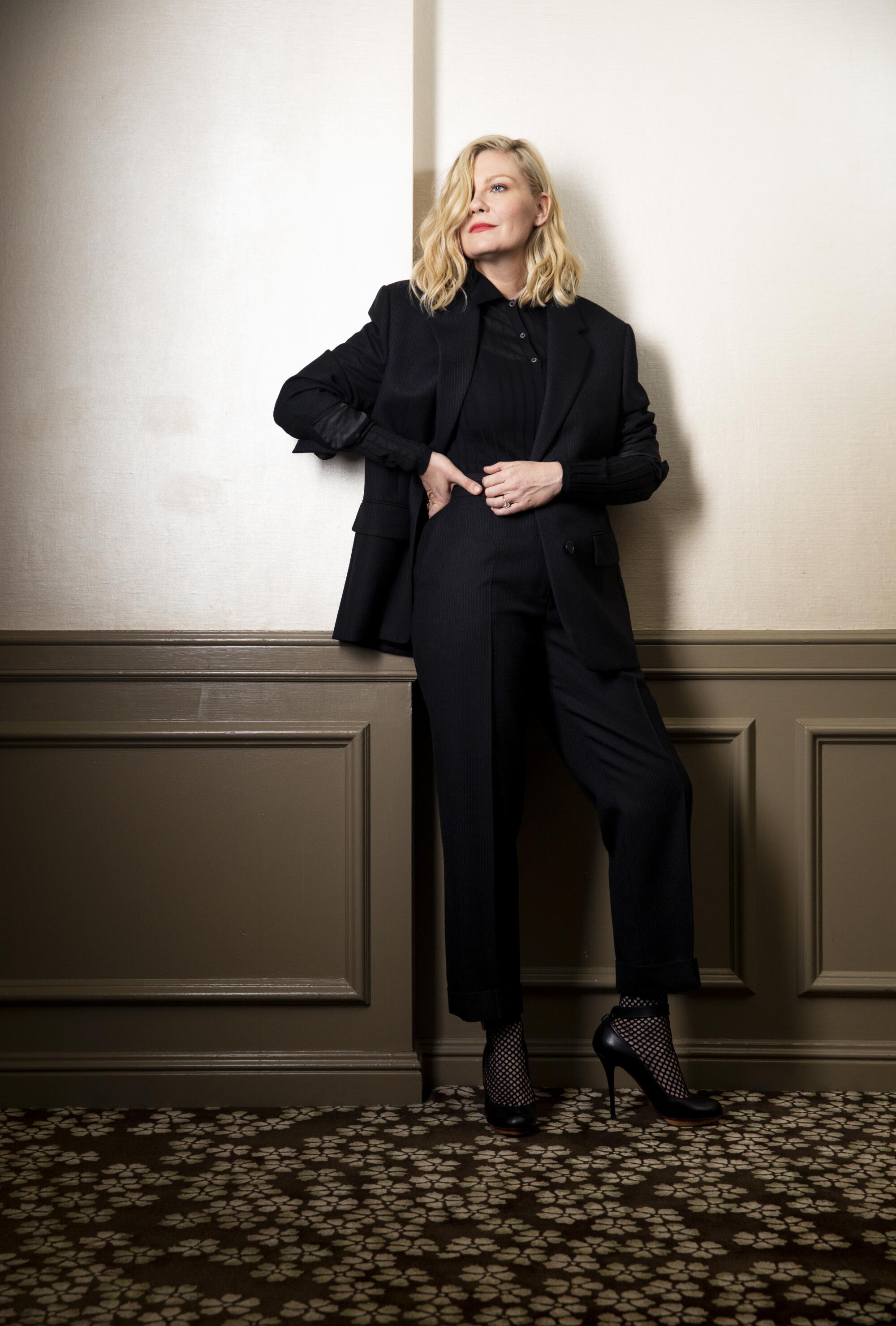
I want to back up just a little bit. Before you had done “All Good Things,” which came out in 2010, you’d taken a break from acting for a couple of years. What was that time like for you, and what brought you back to acting?
When you do it for so long — I started doing this as a little girl. People know me from “Interview,” but I started before that — things have to change. I learned about movies while I was making movies. I didn’t know about my taste in film. I was learning it as I was growing in this industry, and I think the older you get — when something means so much to you, you can work yourself up. I did have to audition when I was older for certain things. I think it was just because it meant so much to me and I wanted the parts so badly that it was worth auditioning, but it also came with a lot of stress. So in doing that, I think more and more, I realized, “Oh, the way that I’m approaching this isn’t giving me anything back.” It felt like more outputting for other people or performing for the director or something like that. It just was meaningless for me.
You’ve been pretty open that during that time you were treated for depression. Back then — around 2008 to 2011 — people were not talking about mental health issues as much as they are now. Was it a challenge for you to decide to talk about that publicly?
It’s so personal. But I do feel like it’s so mishandled. I personally was so terrified of taking an antidepressant at that time. Like, terrified. And it really just helped me clear something so I could start to see things again. So I’m willing to talk at length with anyone who’s struggling.
Was there a moment when you recognized that you were having a problem and that you needed help?
It wasn’t really a “problem.” I wasn’t, like, using drugs or anything. It was just literally my brain got depressed. It was just like, the old way of being and working within the world didn’t work anymore. I just never really got angry. I was just never really angry about things. So that is the definition of depression pretty much. Anger turned inward.
Is that something that you still draw from when you’re playing a character like Rose or your part in Lars von Trier’s “Melancholia”? Is it that much of a one-to-one connection to some of the things you’ve been through?
I think that being given the gift of “Melancholia” and being asked to play that — and Lars has been through a lot of depression in his life, and because we both know it so well in our own ways — it was such a freeing experience. I had the best time making “Melancholia,” if that makes any sense. Like, in order to play depressed, you can’t be depressed. You have to be in such a good place and so open in order to access these things. And so I have to say, doing that was probably the most cathartic for me at the end of the day.
And when you came back to acting after that break, did you feel something new happening?
I think I felt pretty fragile at first, and so I had to rethink and restart studying acting in a different way than I had learned it before. I had worked with coaches before and worked on it. And I had my certain ways of doing things, but those ways didn’t work anymore. So I had to find a new way in, or would probably not be doing it if I hadn’t. I felt such a revitalization of why I do what I do and loving what I do again. And it became something that now is for myself rather than for anyone else.
Listen to the full interview with Dunst on the premiere episode of The Envelope podcast‘s second season beginning Nov. 30. Other upcoming guests include Halle Berry, Daniel Dae Kim, Jennifer Coolidge, Mahershala Ali and Adam McKay. The lead podcast producer for this interview was Heba Elorbany.
More to Read
Only good movies
Get the Indie Focus newsletter, Mark Olsen's weekly guide to the world of cinema.
You may occasionally receive promotional content from the Los Angeles Times.
